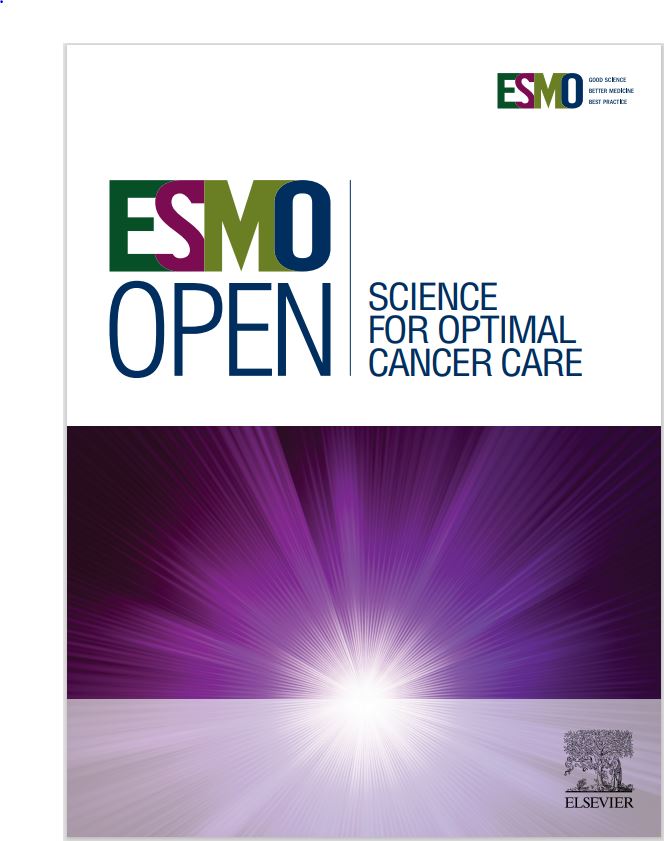From toxicity assessment to adaptive safety care: implementing comprehensive fast-track safety evaluation for anticancer drug development
IF 8.3
2区 医学
Q1 ONCOLOGY
引用次数: 0
Abstract
Background
The conventional drug development pathway in oncology, spanning 10-15 years, has long been slow, costly, and complex, often marked by late-stage failures due to efficacy or safety concerns.
Materials and methods
We aimed to develop this position paper, based on a literature review and by sharing experience, skills, and works of the different co-authors, in order to propose a new approach to the clinical trials’ process.
Results
In the past decade, the field has undergone major transformation. Innovative trial designs and fast-track regulatory pathways, such as priority review, breakthrough designation, accelerated approval, and fast-track processes, have significantly shortened timelines from phase I to market approval. While these approaches have enabled quicker access to promising therapies, they have also exposed gaps in postmarketing safety and highlighted the need for tailored adverse event management strategies. These emerging safety challenges call for multidisciplinary evaluation and the integration of advanced monitoring technologies.
Conclusions
This manuscript introduces a comprehensive, adaptive fast-track safety evaluation framework designed to support oncology drug development. It aims to enhance patient safety while preserving the benefits of accelerated regulatory pathways.
从毒性评价到适应性安全护理:实施抗癌药物开发的综合快速安全评价。
背景:肿瘤领域的传统药物开发途径跨越10-15年,长期以来一直缓慢、昂贵和复杂,经常因疗效或安全性问题而导致后期失败。材料和方法:我们的目标是在文献综述的基础上,通过分享不同共同作者的经验、技能和工作,提出一种临床试验过程的新方法。结果:近十年来,该领域发生了重大变化。创新的试验设计和快速通道监管途径,如优先审查、突破性认定、加速审批和快速通道流程,大大缩短了从I期到市场批准的时间。虽然这些方法能够更快地获得有希望的治疗方法,但它们也暴露了上市后安全性方面的差距,并突出了定制不良事件管理策略的必要性。这些新出现的安全挑战需要多学科评估和先进监测技术的整合。结论:本文介绍了一个全面的、自适应的快速安全性评估框架,旨在支持肿瘤药物的开发。它旨在加强患者安全,同时保留加速监管途径的好处。
本文章由计算机程序翻译,如有差异,请以英文原文为准。
求助全文
约1分钟内获得全文
求助全文
来源期刊

ESMO Open
Medicine-Oncology
CiteScore
11.70
自引率
2.70%
发文量
255
审稿时长
10 weeks
期刊介绍:
ESMO Open is the online-only, open access journal of the European Society for Medical Oncology (ESMO). It is a peer-reviewed publication dedicated to sharing high-quality medical research and educational materials from various fields of oncology. The journal specifically focuses on showcasing innovative clinical and translational cancer research.
ESMO Open aims to publish a wide range of research articles covering all aspects of oncology, including experimental studies, translational research, diagnostic advancements, and therapeutic approaches. The content of the journal includes original research articles, insightful reviews, thought-provoking editorials, and correspondence. Moreover, the journal warmly welcomes the submission of phase I trials and meta-analyses. It also showcases reviews from significant ESMO conferences and meetings, as well as publishes important position statements on behalf of ESMO.
Overall, ESMO Open offers a platform for scientists, clinicians, and researchers in the field of oncology to share their valuable insights and contribute to advancing the understanding and treatment of cancer. The journal serves as a source of up-to-date information and fosters collaboration within the oncology community.
 求助内容:
求助内容: 应助结果提醒方式:
应助结果提醒方式:


